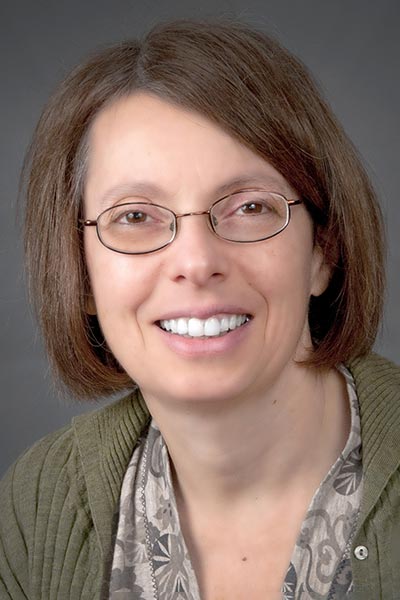Emerging technologies are changing rheumatology. This evolution, including single-cell technologies and the application of new technologies in drug development, is reflected in the Basic Science program at ACR Convergence 2022.

“There’s an emphasis on some new, high dimensional technology and precision medicine technology as they apply to our diseases,” said Basic Science Chair Anne Davidson, MBBS. “It’s a fairly broad program so that everybody in the basic science community can benefit, as well as people who just want to hear what’s new in pretty much all rheumatology disease areas.”
In Precision Medicine in Rheumatic Diseases, 11 a.m.–12 p.m. ET Saturday, November 12, in Terrace Ballroom I of the Pennsylvania Convention Center, experts will discuss novel efforts to incorporate personalized medicine into the diagnosis, management, and treatment of rheumatoid arthritis and systemic lupus erythematosus.
On Sunday, November 13, The Accelerating Medicines Partnerships: From Single Cell Deconstruction to Tissue Reconstruction will address whether tissue B cells are pathogenic or protective; the function of tissue myeloid cells; and the role of tissue NK cells, T cells, and tissue damage in RA and SLE. The session begins at 10:30 a.m. ET in Room 204.
“There is another session on new ways of designing therapeutics. This includes CAR-T cells, bispecific antibodies, and new ways to activate inhibitory molecules,” Dr. Davidson said, referring to Cross-linking and Engineered Biologic Drugs for the Treatment of Autoimmune Diseases, 4:30–5:30 p.m. ET Saturday, November 12, in Room 201. “These are all new ideas and technologies for drug development, and the session introduces our audience to some of the things that are coming around the corner.”
Trans-omics Dissection of Gene Regulation in Immune-mediated Diseases: A Joint JCR/ACR Session, 4:30–6 p.m. ET Sunday, November 13, in Room 103, will highlight advancements in rheumatology research in Japan, including using new technologies in genomics, proteomics, and trans-omics. This session, which will discuss how next-generation sequencing, single-cell analysis, and high-resolution imaging provide novel insights into immune-mediated pathology, also aims to foster academic and clinical collaboration between the ACR and the Japan College of Rheumatology.
A session on Cardiovascular Risk and Inflammation in Rheumatic Diseases: Role of Cells and Cytokines, 3–4 p.m. ET Sunday, November 13, in Room 103, will address this high-interest topic.
“This is a big problem in rheumatic diseases,” Dr. Davidson said. “A lot of our patients, even if we get the disease under control to a certain extent, if they have early cardiovascular disease, they can die of that. There are three speakers talking about risk factors and why inflammatory diseases might increase the risk of cardiac disease.”
Also on November 13, a panel of experts will share new insights into Immunosenescence and Inflammaging: From Cradle to Grave as they relate to autoimmune diseases across the lifespan. The session will take place 12–1 p.m. ET in Room 103.
“This is a hot topic in immunology, this idea that immunosenescencecan be inflammatory, so it’s not only an issue for immune diseases, but it’s an issue for aging,” Dr. Davidson said.
Presenters will discuss an inflammatory aging clock, as well as similarities among aging, Down syndrome, and autoimmunity revealed by deep immune phenotyping.
“We have a good program this year,” Dr. Davidson said. “There’s something for everybody, and we’ve tried to balance our speakers in terms of younger investigators, older investigators, and gender equality to show that our whole community is participating in research.”
Other Basic Science program sessions Dr. Davidson highlighted include:
Cytoplasmic Sensing During Aging and Autoimmunity
Saturday, November 12 | 11–11:45 a.m. ET | Room 121
The session will address how alterations in cytoplasmic sensors contribute to autoimmunity and how aging alters cytoplasmic sensing and thus disease response.
The Ears Have It: Autoimmune Hearing Loss and Relapsing Polychondritis
Saturday, November 12 | 3–3:45 p.m. ET | Terrace Ballroom IV
Speakers will highlight two autoimmune diseases of the ears: sensory neural hearing loss and vasculitis of the ears. Topics to be covered include mechanisms for autoimmune damage of the inner and outer ear, and mechanism-based strategies for therapy.
Immunology Through Space and Time: A Primer on High Dimensional Techniques for Advanced Immune Profiling
Monday, November 14 | 9–10 a.m. ET | Room 121
Speakers will explain different high dimensional techniques for immune analysis, including conventional and spectral flow cytometry, mass cytometry, and spatial transcriptomics, and how they can be applied to advance rheumatic disease knowledge.
The Accelerating Medicines Partnership: Lessons Learned and the Path Forward
Monday, November 14 | 10:30–11:30 a.m. ET | Room 121
Presenters will provide an overview of the technologies, such as new statistical tools to handle large datasets, and major findings used in the first round of investigation by the Accelerating Medicines Partnership, as well as the consortium’s future plans for studies.
Register Today for ACR Convergence 2025

If you haven’t registered for ACR Convergence 2025, register today to participate in this year’s premier rheumatology experience, October 24–29 in Chicago. All registered participants receive on-demand access to scientific sessions after the meeting through October 31, 2026.
